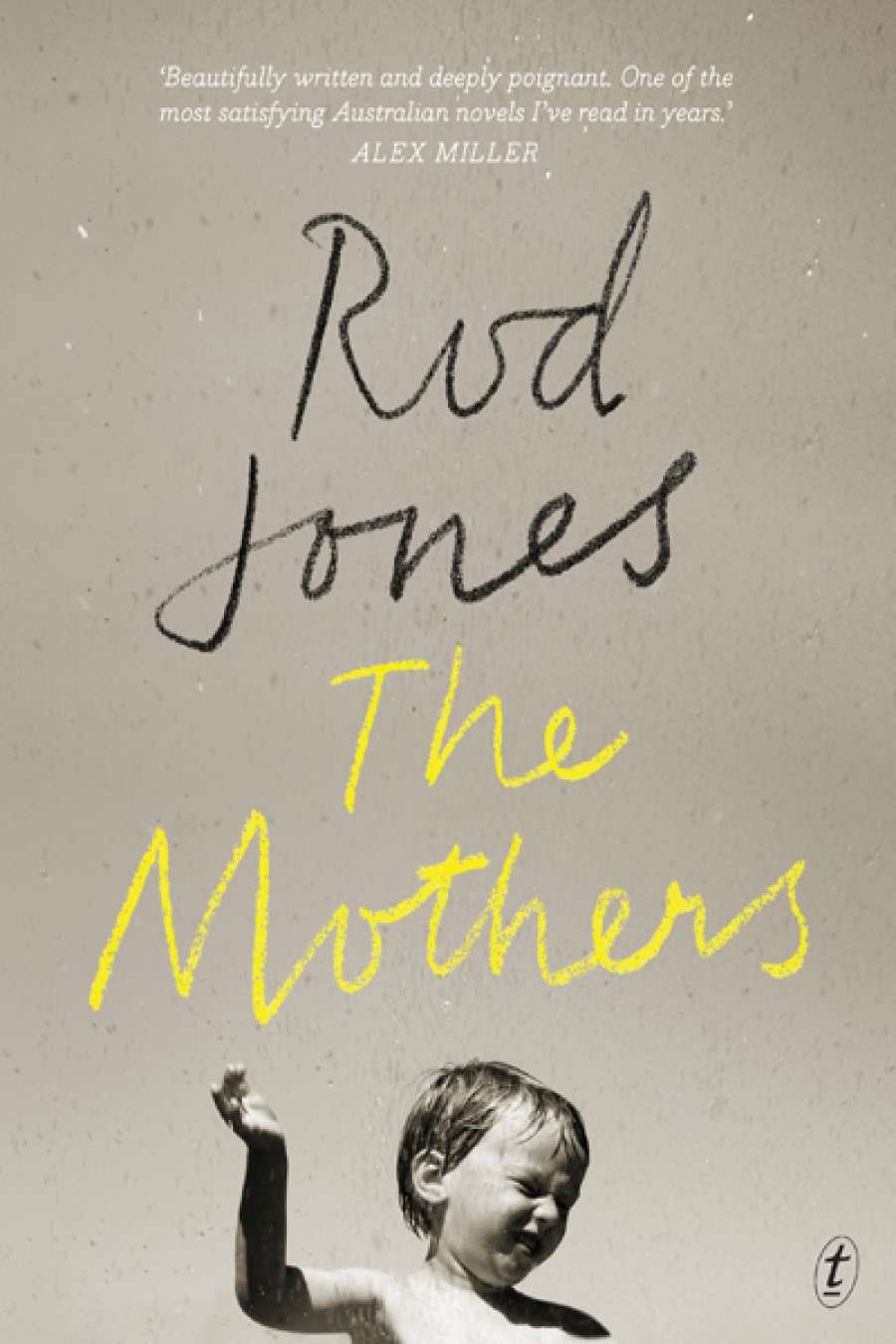
- Free Article: No
- Contents Category: Fiction
- Custom Article Title: Rose Lucas reviews 'The Mothers' by Rod Jones
- Book 1 Title: The Mothers
- Book 1 Biblio: Text Publishing, $29.99 pb, 334 pp, 9781922147226
At the thematic and emotional core of these interwoven observations lies the nexus of motherhood. As we move through the twentieth century, the novel explores motherhood’s links to social expectation and regulation, to sexuality and relationships, to biological and non-biological parenting. Whatever its variations across time and temperament, the narrative reinforces the centrality of this primary bond between mother and child. For the woman, depending on her circumstances, mothering might be a burden, or a focus, a conventional role or a choice, a distraction, a trap, or a profoundly enriching and anchoring experience; for the child, Jones suggests, the importance of the mother, or mother figure, is paramount. Those children in his novel who experience some kind of break in this relationship are seen to struggle with an anxiety and loss of confidence which marks them throughout life.
Beginning in 1917, with the war on the Western Front still raging and young local men being lost to it, the novel introduces us to Alma, the first ‘mother’. Cast out of her home by a philandering husband, Alma must fend for herself, her two children – and, soon enough, another baby, conceived out of wedlock. Constrained by the inability to obtain a divorce and thus remarry into financial, social, and emotional stability, Alma must use all her wits and energy to fend off the judgements of her community and provide some kind of future for her children. A less determined character than Alma might have gone under because of this degree of privation and alienation, where even those offering support still apportion blame for the situation onto the woman herself.
When Alma is unable to support her family, she takes the drastic step of placing her youngest child, Molly, into an orphanage for a number of years. And while Molly finds unexpected friendship and support there, the experience is also significantly disruptive and Molly is left with a legacy of anxiety and fear of abandonment. When, as a wife in the 1950s, she finds herself unable to have children, she and her husband choose to adopt a baby boy – and the story of The Mothers incorporates another narrative thread.
‘The overall effect is rather like that of looking through a box of faded photographs, turning each one in the light’
Anna, a young pregnant girl, is placed into a haven for unmarried mothers where, despite her desperate desire to keep her child, she is finally coerced into having her precious baby adopted. Jones explores what has recently been exposed as a common story, the trauma experienced by unmarried mothers in this mid-century era, the overbearing, often inappropriate pressure upon them to relinquish their children and the lifetime of suffering that ensued. Jones brings his sprawling novel to a close at the point at which that child, now Molly’s adult son, David, makes contact with his birth mother, Anna – and an uncertain reconnection is begun.
 Rod Jones (photograph by Maria Vella)
Rod Jones (photograph by Maria Vella)
Jones uses the character of David to provide a certain kind of ballast to this linear tracing of the generations of a family. We see David’s own wife struggling with changing ideas about female sexuality, career paths, and maternity in the turbulent 1970s, even as she grapples with her husband’s often conflicted behavior. A ‘complex man’, as Anna recognises, David is prone to anxiety and bursts of rage; he is, however, also a reflector, a novelist whom we see explicitly re-examining the stories of his own life and experiences within the frame of fiction. As we follow this self-reflective trail, David becomes not only aligned with the observing voice in The Mothers – the voice of the young man who has always sought out, and worried about, his connection with his mother, and whose quest for her now coheres these separate but interconnected lives – but also aligned with Jones himself. Like David, a writer who lives by the sea with his wife and three children, and who has travelled to and written about Greece, Jones self-consciously does what every novelist and creative writer must do: he situates his fictional stories within the specificities of particular times and places, and finds in these rich detailings of the lives of others, threads and insights about the life of the self, the personal.
As The Mothers makes clear, the stories we tell are indeed the stories of others, but they will always be inflected with the values and preoccupations of the sensibility which has created them. In trawling through those photographs of the past, we will also find shadows of ourselves.


Comments powered by CComment